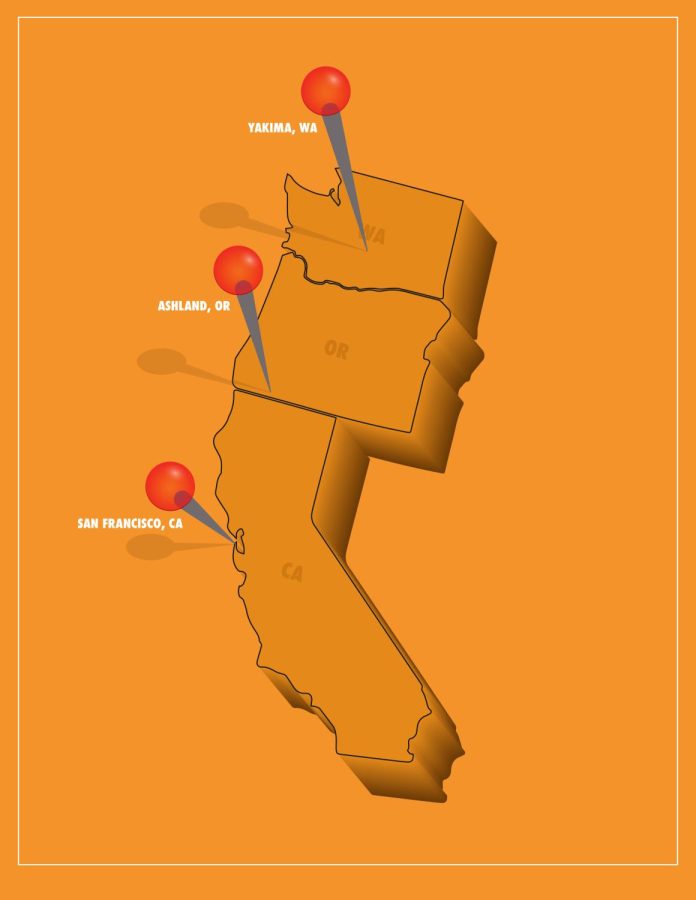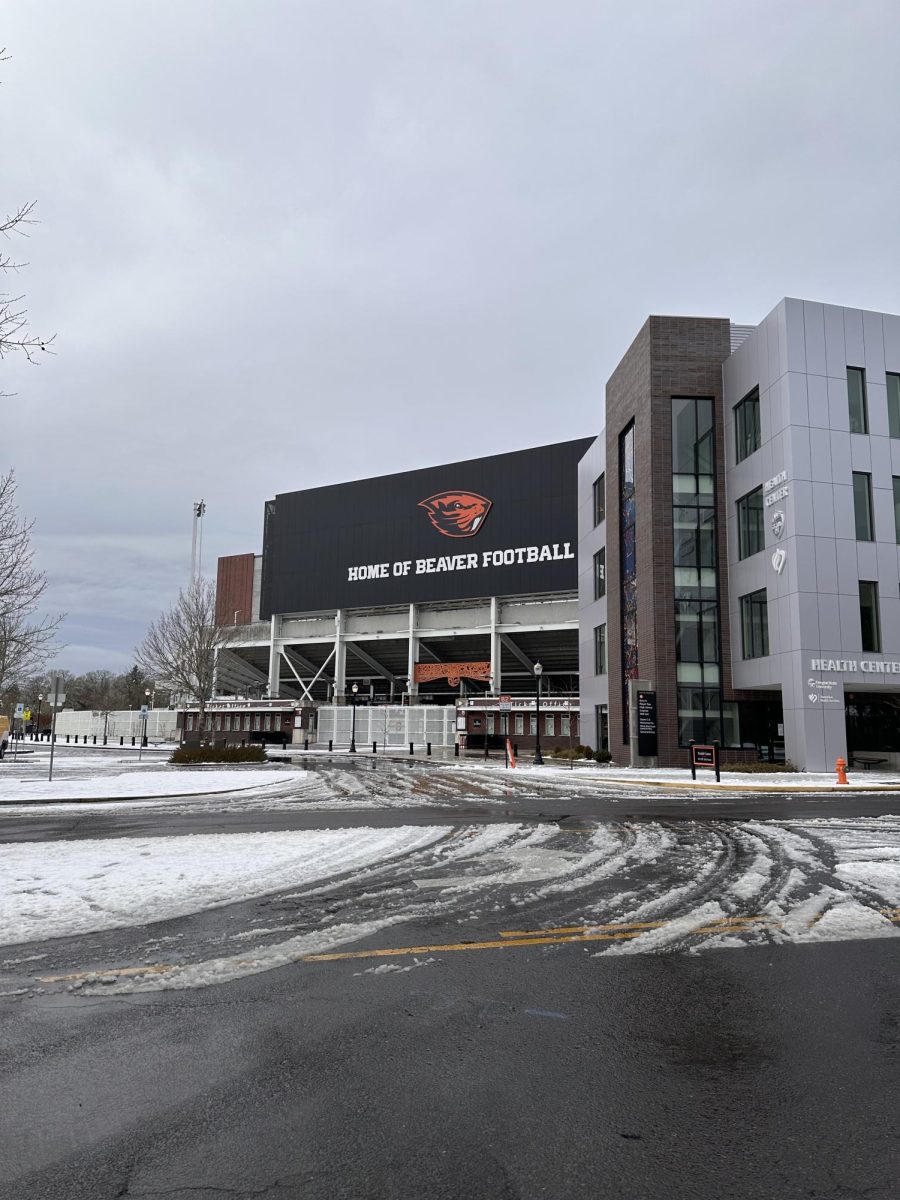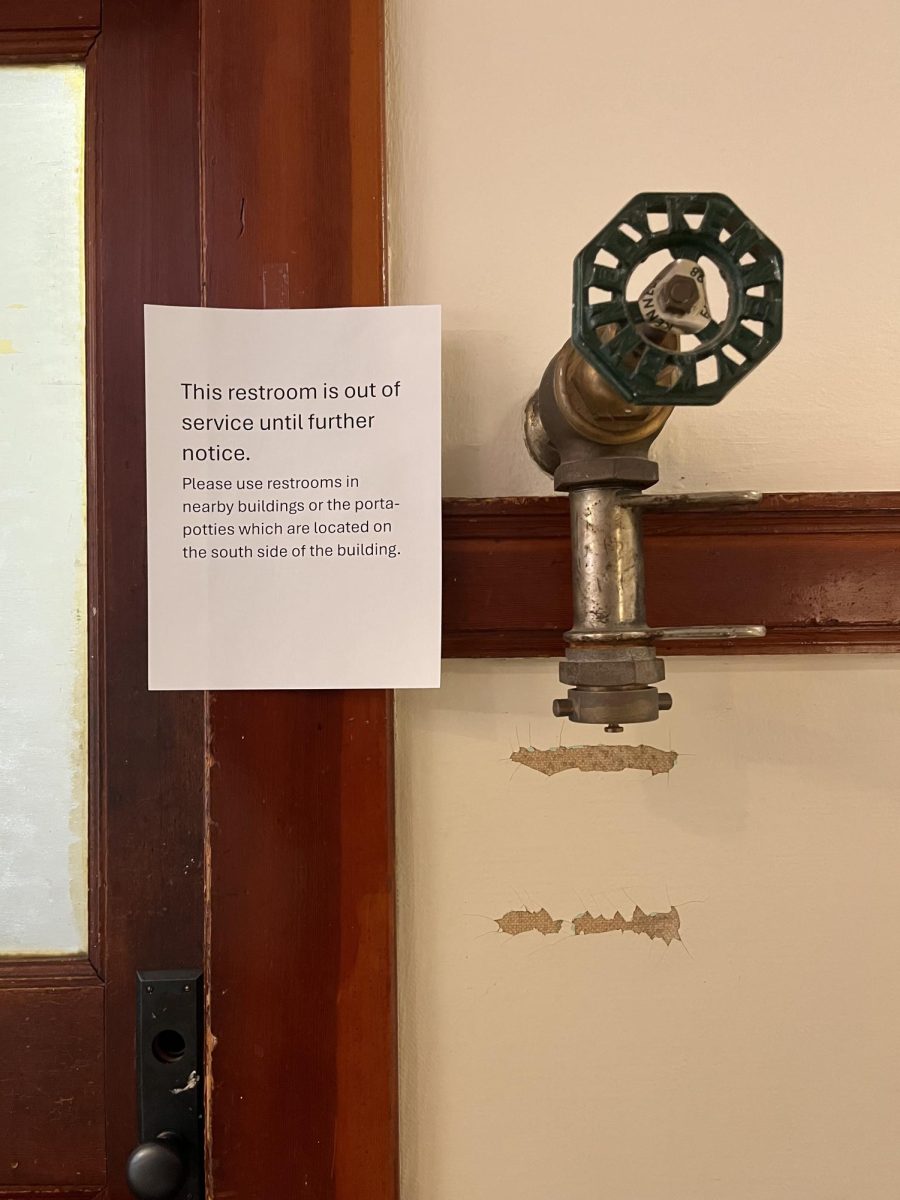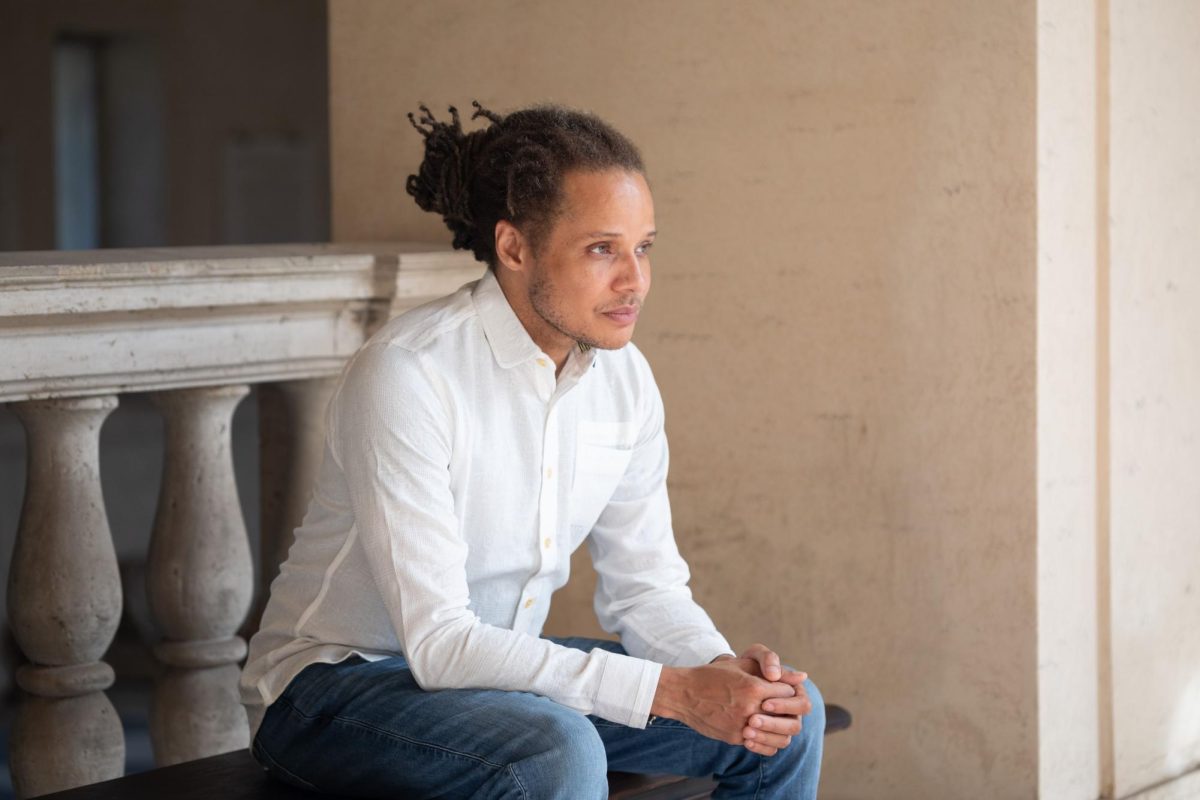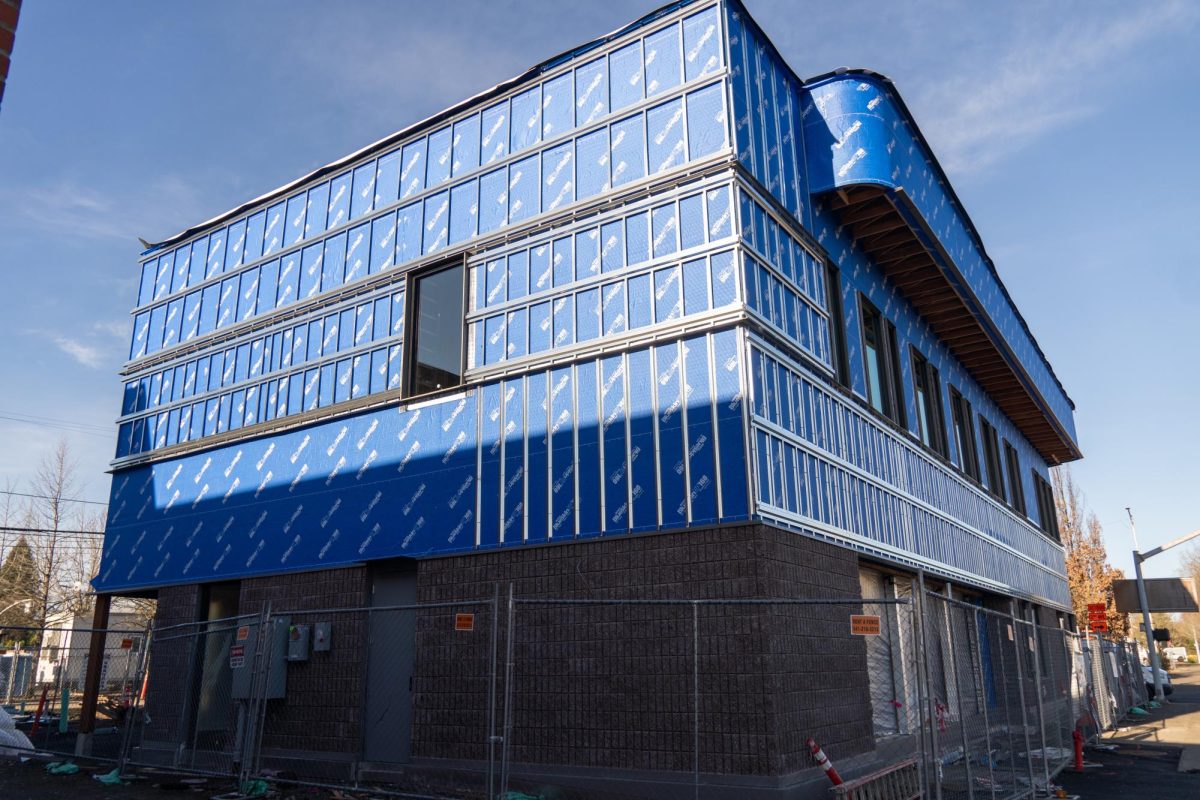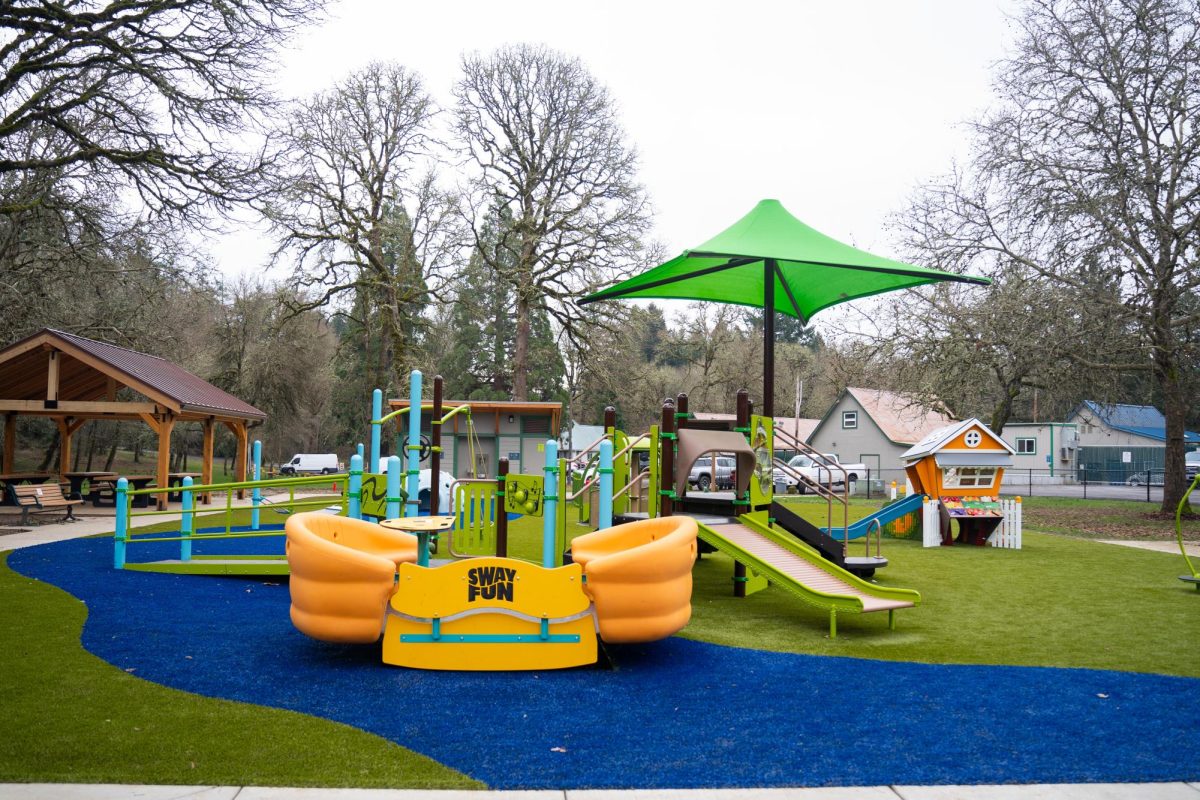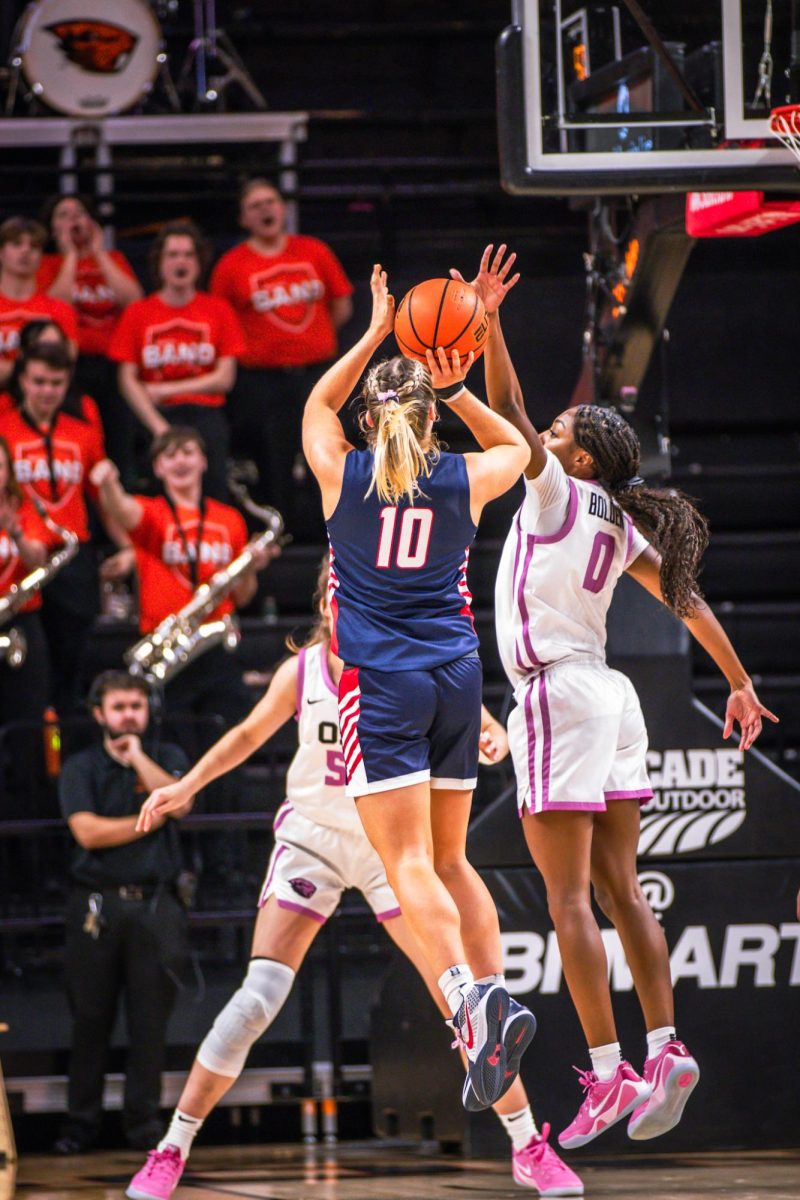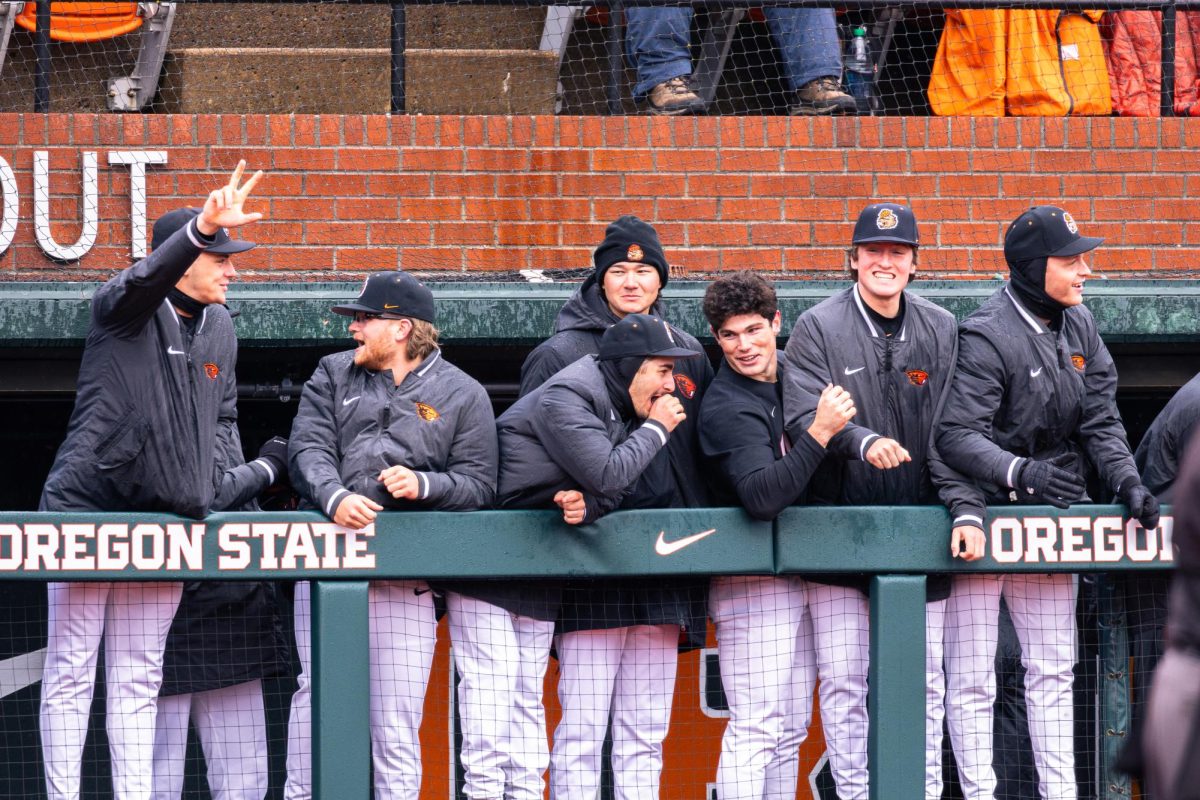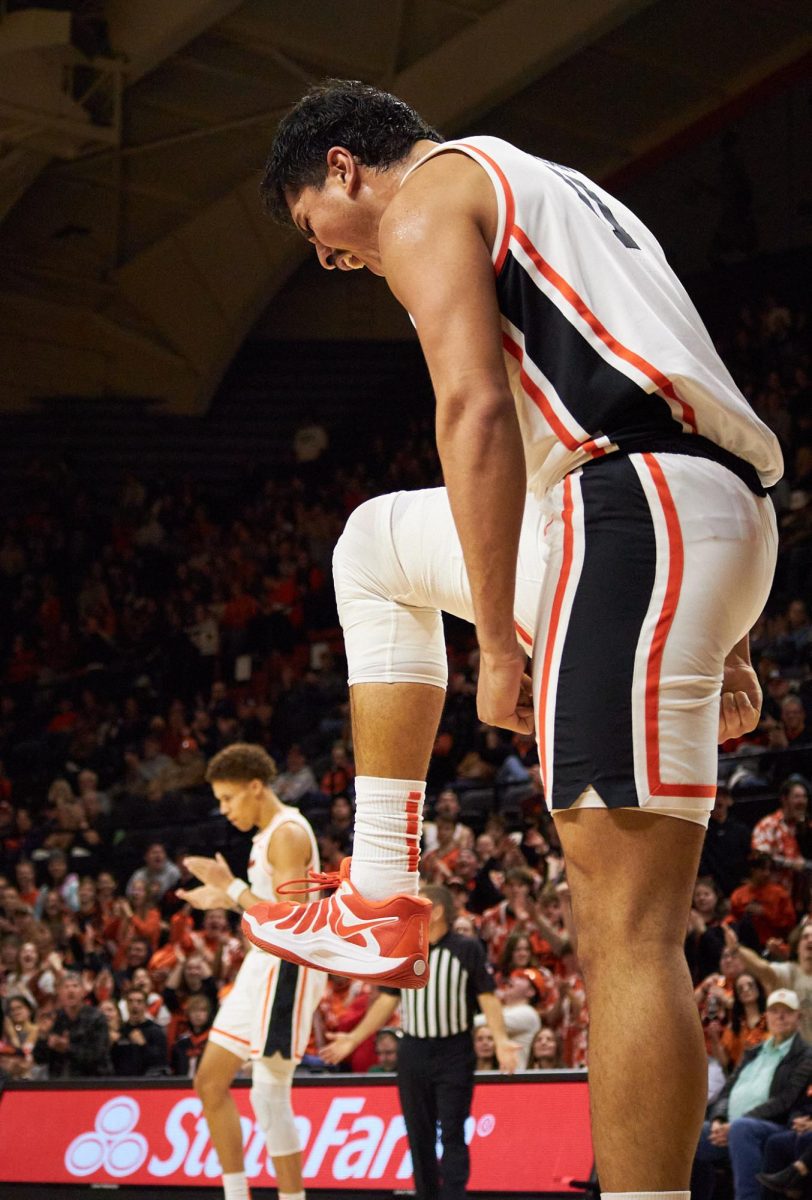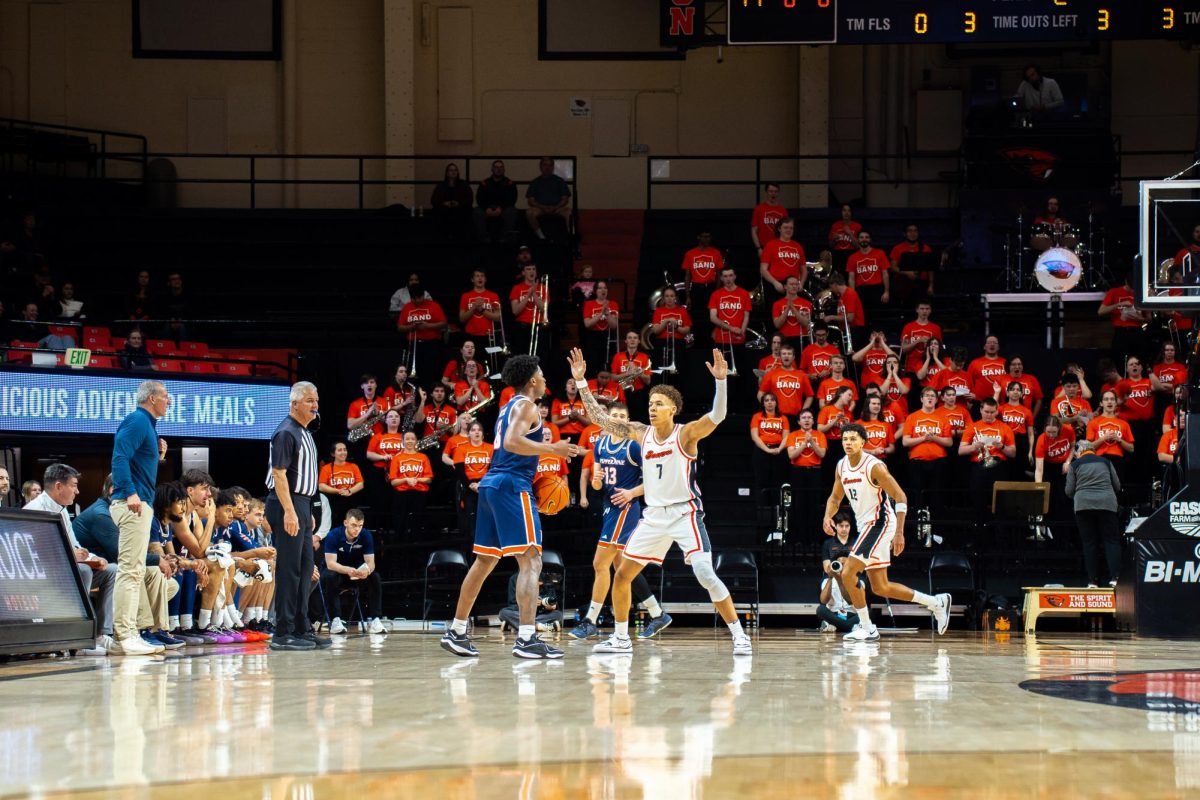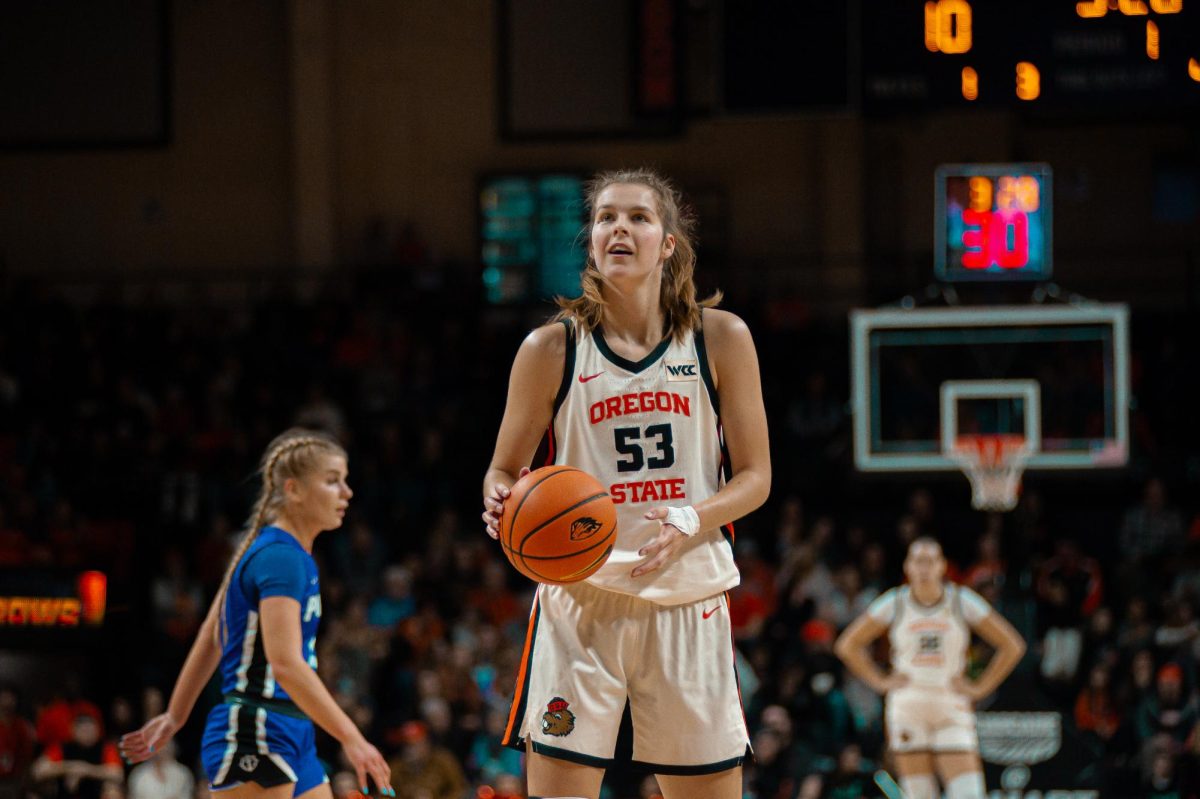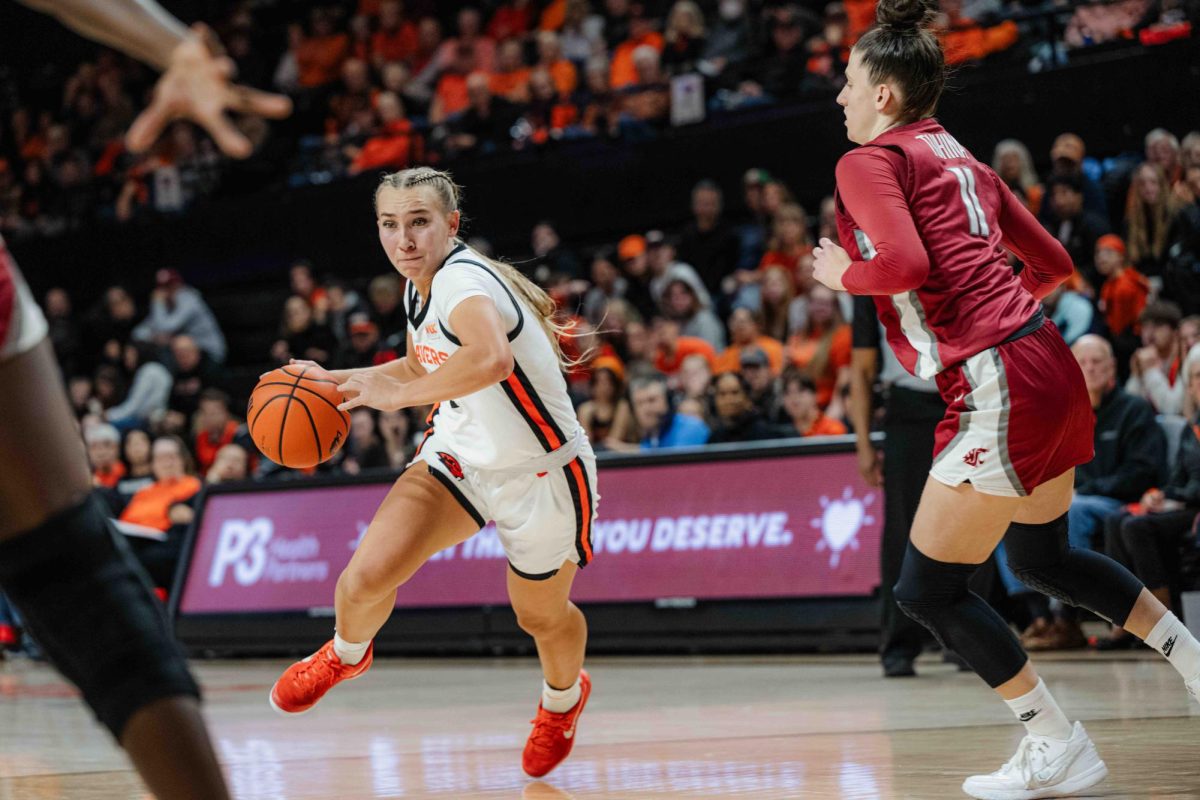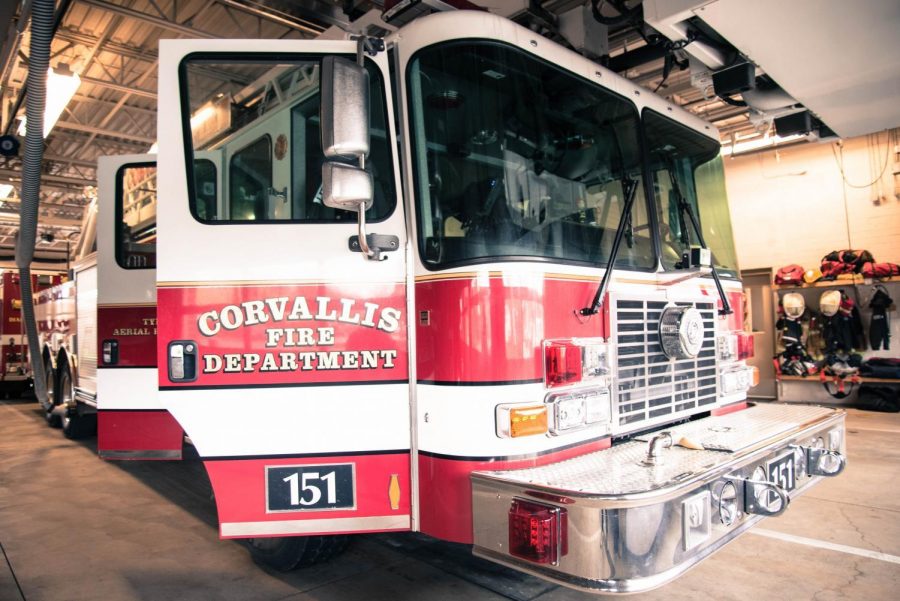Fighting fires, earning degrees
May 7, 2018
Corvallis Fire Department assists students with tuition through volunteer program.
The five different stations within the Corvallis fire district hold 25 resident volunteers, most of whom are students at Oregon State University.
These resident volunteers train, work and live with both their fellow volunteers, as well as the paid staff at the stations around Corvallis, all while they are attending school.
“It’s been awesome. I love it,” Jack Burr, a resident volunteer at the downtown fire station and a junior studying history at OSU, said. “There’s a lot of benefits to it. It’s hard work, but it’s free rent, you get close to your crew, it’s a really good opportunity for young people like me who want to work hard and serve their community and go to school.”
According to Lieutenant Will Kalenius of the Corvallis Fire Department, who is in charge of resident volunteer recruitment, the makeup of the Corvallis Fire Department is unique compared to other fire departments around the state.
“The Corvallis Fire Department is the largest combination department, meaning that it consists of both paid staff and volunteers,” Kalenius said. “The volunteers are a part of the team and are used on the front line.”
The Corvallis Fire Department has been the beginning point for many firefighters across the state of Oregon, Kalenius said.
“Many fire departments across the state have a previous volunteer from Corvallis,” Kalenius said. “The resources and training available to the volunteers give them a great experience and make them very hireable both to other fire departments and in general. It’s a win-win.”
Resources offered to resident firefighters include a cost-free place to live and EMT training and license that is paid for by the Department, Kalenius said. Additionally, this provides students with an opportunity to help their community.
The experience and resources have been helpful for Nick Pozzesi, a rural resident volunteer at station 6, also known as the Lewisburg rural station, who was a previous student at OSU and now studies paramedicine at Chemeketa Community College.
“I got into the fire service mostly because I like medical stuff and really liked emergency services,” Pozzesi said. “I came here because Corvallis has this great rural resident volunteer position. They pay for all your school and give you a free place to live, it’s a really good deal.”
While those at the Lewisburg rural resident station receive funding for school, it’s more work than the resident volunteer position at the other stations, Kalenius said.
“Those at the Lewisburg station have to work super hard,” Kalenius said. “The station is made up of mostly rural resident volunteers, and they train every shift whether or not they get any calls.”
Pozzesi said working as a rural resident volunteer is different than working at the stations in town.
“Station 6 is really good if you want to pursue anything more than just basic firefighter skills,” Pozzesi said. “Right now I’m an apparatus operator. So I get to drive and operate the engine, our brush rig, our water tender, any apparatus we store at our station.”
Burr said the resident volunteers work and spend such a significant amount of time together that they begin to grow into a community.
“You end up spending a lot of time with each other, so it’s a tight-knit group,” Burr said. “We spend all day, every day together, and then we run calls, so there’s a certain element of trust that you have to have.”
The individuals at each fire station are who the public calls when in need of assistance in navigating crises, Kalenius said.
“It’s an incredible opportunity and life experience for a young person that can really be a springboard and a resume builder that is both fun and extremely demanding,” Kalenius said.









